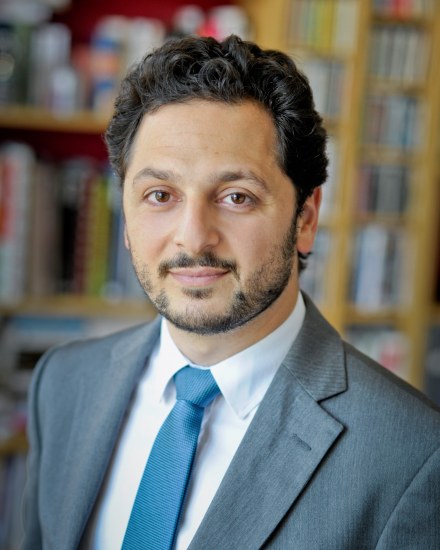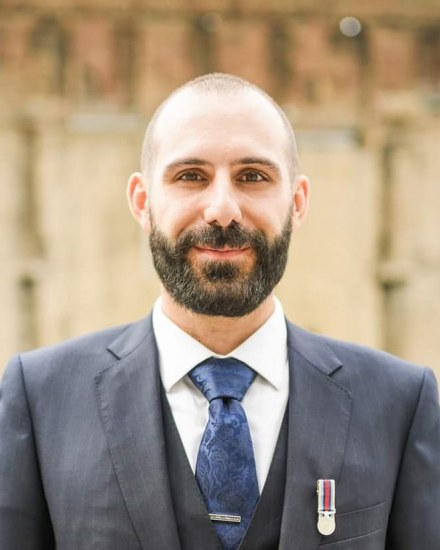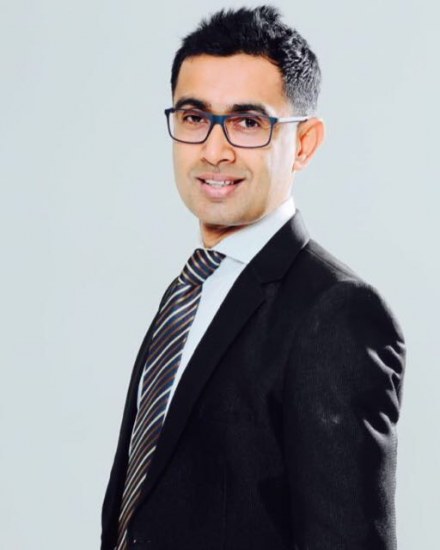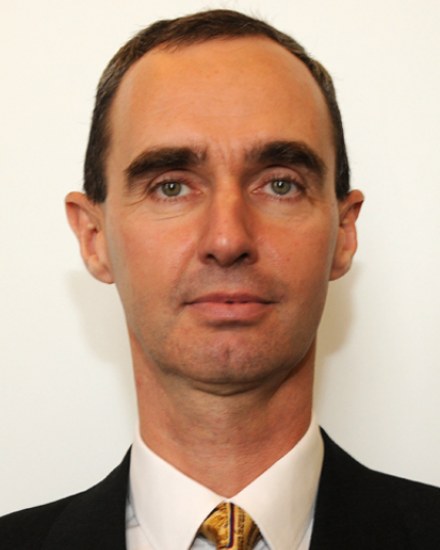There are many academics and professionals working on the MSc in Cybersecurity & Defense Management program to ensure that it is designed in an optimal way for graduates to have the skills and experience they need to launch a successful career.
So who is involved in the program?
Michel SEJEAN – Professor of Law – French/Lebanese

What is your role in the MSc in Cybersecurity & Defense Management program?
I am honored to be in charge of two courses, both belonging to Module 3, whose tentative title is: "From Cyber to Technology Management, how to assess vulnerabilities to meet operational & regulatory standards".
The first one is a twelve-hour seminar on Cyberlaws & Regulations. Participants will learn about the legal cyberlandscape and its complexities in a way that will enable them to ask the right questions to their legal counsel in case of a cyberattack. The seminar will also involve case studies on third-party management (63% of cyberattacks use vulnerabilities from third-party vendors to reach their target). Ultimately, all activities in this seminar are designed to mitigate the legal and the reputational risk of a cyberattack.
The second seminar is designed to offer 24 hours of activities regarding Numeric Sovereignty - a concept whose formulation needs to be challenged. Its focus will not be primarily operational, but rather political and strategic. A comparative approach will enable participants to take part in this seminar by sharing research on their country of origin. Noteworthy speakers will be invited to stir up debate.
How does your course in the program add to student's better understanding of the cybersecurity & defense management profession?
Regarding Cyberlaw & Regulation, participants will learn to ask the right legal questions to the right person in their organization. The purpose is not to turn them into lawyers, but to enable them to be at ease with being stakeholders of the legal aspects of a cyberattack. Mitigation of the impacts of a cyberattack will be the conceptual backbone of this course.
As for Numeric Sovereignty, it is the core concept of many military and economic doctrines in France: participants will be invited to challenge it and to exercise judgment as to whether or not the success of "Numeric Sovereignty" is deserved or not. Examples drawn from the preparation of the Paris 2024 Olympic Games, as well as analogies with "Sanitary Sovereignty" during the Covid-19 crisis will help participants forge their own opinion of the notion of Numeric Sovereignty and on its doctrines.
What do you think are the strong points of the program?
This program is designed to offer a learning experience with a solid base of facts, of understanding and of retention, all focusing on application. But more importantly, this program dedicates most of its hours to enabling students to practice their newly learned skills in three key directions: to evaluate, to analyze, and to create with what they have learned. The cognitive design of this program is its strongest point, consistent with the large volume of hours - one of the largest in the sector.
Lewis Sage-Passant – Head of Security Operations at Salesforce – British/Irish

What is your role in the MSc in Cybersecurity & Defense Management program?
I'll be teaching the module on intelligence, and specifically how it can be valuable to businesses from a security, crisis management and resilience perspective.
What do you think are the strong points of the program?
It is one of the first courses globally to address the critical need for intelligence within the private sector and corporate security world, and draws on a mixture of academics and experienced industry professionals.
Why is such a program so important today?
Businesses are facing an increasing number of threats in an increasingly uncertain world, and having the tools to navigate rapid shifts and thrive in a challenging global environment is key. Few programs exist to provide new talent to the security and intelligence sector, so this program fills an important gap!
Coming from the industry, how do you think this program will help students stand out when searching for employment in cybersecurity & defense management?
A combination of practical and academic knowledge will help students find roles in a rapidly growing industry that is struggling to find the right talent. While my module focuses more on the physical security side of the industry, intelligence is a practice in demand across the full spectrum of the security world, and the lessons learned will have universal application.
Farhan Sahito – Director General at Privanova - Pakistani

What is your role in the MSc in Cybersecurity & Defense Management program?
Part time speaker on Cybersecurity Module such as Cybercrime & Digital Forensic Investigation as well Project management.
How does your course in the program add to student's better understanding of the cybersecurity & defense management profession?
My course will help students in understanding the nature and impact of cybercrime from the law enforcement point of view and how to address the new challenges created by digital/electronic evidence. They will also learn different types of actors involved in cyber threats (individuals, organizations & nation-states).
What do you think are the strong points of the program?
This strong point of this program is to acquire Cyber-Protection, Cyber-Detection and Cyber-Response skills and expertise at one place
Why is such a program so important today?
This course is very important as it provides a complete view of cybersecurity and prepares students for cybersecurity careers.
Thibaut Heckmann – French Military Senior Officer at the National Gendarmerie (French Interior Ministry) – French

What is your current position?
I am currently a French military senior officer at the National Gendarmerie (French Interior Ministry). For several years, I was the head of the National Data Extraction Unit of the French Forensic Science Institute. I am currently in charge of the Gendarmerie's Community of Researchers, Doctors and Doctoral Students in 37 academic disciplines as well as international relations and projects.
• What is your role in the MSc in Cybersecurity & Defense Management program?
I will be in charge of the "Cybercrime and Digital Investigation" module. This 24 hours training will provide students with theoretical and technical skills based on real and complex cases encountered by Law Enforcement Agencies (air crash, terrorist attacks).
What do you think are the strong points of the program?
This program will prepare future executives for the real challenges of cybersecurity. The training is devoted to academic excellence, through a unique multidisciplinary program in cybersecurity that provides outstanding educational, research and professional opportunities.
Why is such a program so important today?
The cyber threat is ever increasing and major economic stakes are growing in this sector. Companies and administrations need to rely on employees with solid training. Thanks to the quality of the MSc of emlyon business school's lecturers and partners, and the high level of theoretical and practical training, this program will be a reference for future operational experts in cybersecurity.
Laurent de Jerphanion – Head of Sales and BD for European Studies at Thales Land and Air Systems – French

What is your role in the MSc in Cybersecurity & Defense Management program?
I am in charge of the Business Development, Marketing and Sales in Cybersecurity and Defense syllabus as well as a member of the scientific committee
How does your course in the program add to student's better understanding of the cybersecurity & defense management profession?
Students will understand the specifics of cybersecurity and defense market approach, including the BtoG and BtoB relationships thanks to a combination of study cases and theoretical analysis. They will be able to analyze market and competitors and to build up a strategy to develop business and target opportunity. The importance of politics and ethics will be thoroughly understood as well
Why is such a program so important today?
By paying attention to daily news, one can realize the increasing risks and threats in cyber and defense, and the hybrid warfare and organized crime ambitions, companies are common targets. Managers need a thorough understanding of these fields to anticipate, counter or mitigate these topics.
Coming from the industry, how do you think this program will help students stand out when searching for employment in cybersecurity & defense management?
Beyond geeks and specialists, our students will be able to offer new value to companies: a highly praised combination of mastering of management and cybersecurity and defense. They will address a rapidly expanding market with a thirst for talents.


